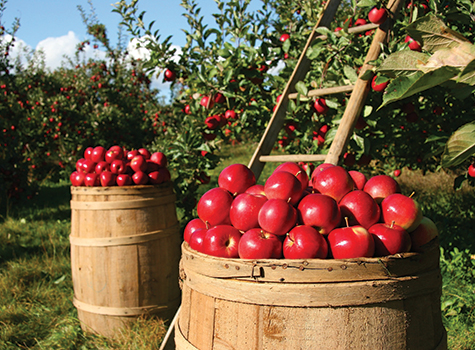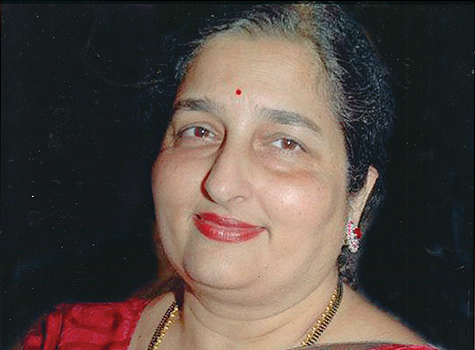By Ahsen Jillani

Maybe I mentioned it. Maybe I didn’t. My bad diet may be affecting my memory.
But a dozen years back was my last (and probably final) trip to Pakistan. My mom and I visited the cancer hospital in Lahore, enjoyed the tremendous hospitality of my cousins, and headed 100 miles south to Sahiwal, which was her childhood home post-partition. Three ageing uncles still occupy various homes on this property, which is an oasis in the middle of a now urban hell.
My ulcer was acting up. It was the long trip from America. It was also the realization that my mother was going to die, and this would be my final trip. But sub-continent hospitality is second to none. My cousin’s wife always had one eye pointing toward me at the dinner table. She was noticing I was eating about half a roti with water. The next day there were milder lentil and rice dishes for me. I was stunned.
But a week out getting into Sahiwal, I had another encounter with the culture of my mother’s family. The driver got lost, and my memories dating back to 1976 were not serving me well in the new urban sprawl. I asked several people along the way where Civil Lines was. They shook their head and said they had never heard of it.
Approaching 3:30pm we got to the one uncle’s house in the back of the compound of three houses and barns and servants’ quarters. He hadn’t eaten yet, waiting for his eldest sister to arrive. When my mother took the first bite of the chicken curry, he then waited for her to nod a “Yes” and then started to eat. My other uncle invited us to his house the next day for a feast for my mother, and despite having servants, stood behind my mother instead of eating himself. He would put spoons full of various items in her plate and fold the hottest roti and put it neatly in her plate throughout the meal.
That was love. But my mother died anyway. And all of us lost the tremendous cultural ecosystem from Panipat, India, that she was – and with her and some of the elder of the nine children of my grandfather, the world slowly eroded into something modern, something – well, a double cheeseburger and pizza with extra onions.
My mother’s side of the family for generations were called the Hakimwalas. They were rumored to be the physicians to the royal families. The dusty remnants of my grandfather’s medical mixtures were still there in glass cabinets when I visited in the late 60s and early 70s. But more important than the tinctures of “Bawa” were his sayings, which have become legendary. Sixty years after his death, the ageing uncles and aunts still repeat them to great grandkids who snicker while flipping through social media on their phones.
But Bawa was an aristocrat – a high official in the British Raj. And he had a rule for everything. Women did not get any piercings. They needed to stay pure. You did not part your hair in the same place daily. You did not want to meet your maker with a man-made part in your hair. And, yes, women never entered the kitchen. That was for the servants.
So, when on the raised platform “tukth” on the covered porch, summer eves, the servants would lay down the “dusturkhans”, decorated tablecloths, and 20-25 family and visitors would cross their legs and sit around it and pass two or three bowls of thin curry around, I would watch in amazement. I was kind of hungry after playing in the summer heat all day. There was no shortage of food. The servants would end up eating most of it. But … you ate one roti and stopped. Bawa and his teachings were hovering over you. Nobody emptied the food bowl. The last of it went back to the kitchen.
My father’s side of the family were Punjabi. You pretty much got cholesterol poisoning right at breakfast with half a gallon of hot milk with cream floating on top – and when you thought that was a filling breakfast, well, here came the cholay, puri, 4 fried eggs, parathas, leg of lamb, roasted car tire, and maybe even the grilled dhoti of my grandpa. Most of them died in their 40s and 50s. But they died smiling and with full bellies.
I have been through a lot of dietary research in the last few years due to diabetes. I swapped meat and dairy with vegetables. I switched from vegetables to nuts and berries. I was always hungry or feeling sick to my stomach. Go from Keto to Palio to Atkins to Flexitron to Omicron to Telepathetic, and you still feel like you ate a rock and are going to die.
In the end, it is about the Hakimwala, “Bawa”. The overeating royals eating pounds of food, downing gallons of wine, chewing on thousands of calories of sweets all the while watching dancing girls and jesters doing funny magic tricks – it is an addiction. Food can be as damaging as heroin or alcohol or tobacco. Food is a privilege. We are a fairly recent tribal culture that came out of a world where we walked all day and scavenged for roots, herbs, insects, small game, and fruit.
Yeah, the Mediterranean Diet may add 13 years to your life, but not in the serving portions we demand in the West. Those cultures don’t eat like they are at the Golden Corral buffet. The secret most researchers have stumbled upon is that people on these best diets in the world is their meals are a slow and relaxed community affair. You nibble, you talk, you laugh, you hug, you toast the newborns and the dead. You walk home slowly. You don’t need a full belly. You eat like Bawa – who died of a stroke at 61, but that’s life too.
———-
Ahsen Jillani a former editor and publisher, is originally from Islamabad, Pakistan, and now lives in Mint Hill. He owns Must Media, a PR company focusing on both political and corporate clients.



